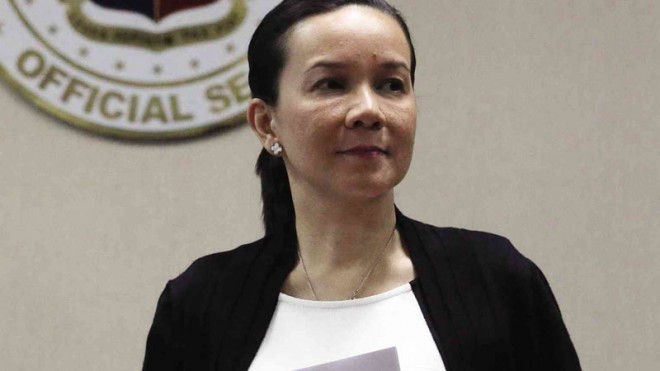If the presidential elections were held today, the Philippines will have its third woman President in Senator Grace Poe.
That is according to the results of the recent voter’s preference surveys commissioned by Social Weather Stations (SWS) and Pulse Asia, two of the foremost poll bodies in the country.
However, her lead in the surveys was not gained overnight as she only became the frontrunner in June, beating political veterans Vice President Jejomar Binay and administration coalition bet Mar Roxas, who both have expressed their intention to run for president in next year’s polls.
June 2014: Poe in distant 2nd place to Binay
In the Ulat ng Bayan survey of Pulse Asia conducted from June 24 to July 2, 2014, Senator Poe was only chosen by 12 percent of respondents to succeed President Benigno Aquino III in 2016. Her position was a distant second to then leading poll frontrunner Vice President Jejomar Binay who was preferred by 41 percent of respondents.
Trailing behind Poe is Manila Mayor Joseph Estrada at nine percent and Senator Francis Escudero at seven percent.
September 2014: Poe drops to 4th place
Falling from grace, Poe slid to fourth place from being the second choice for president in the June 2014 survey, according to Pulse Asia’s September 2014 Ulat ng Bayan survey. Ten percent of respondents chose the lady senator as the next President.
In the said survey, Binay was still at the top, although his lead dropped at 31 percent from June 2014’s 41 percent.
Roxas trailed after Binay at 13 percent, followed by Senator Miriam Defensor Santiago at 11 percent.
December 2014: Poe jumps to 2nd place
After a dismal showing in the September 2014 Pulse Asia poll, Poe became the second most preferred candidate for President in the surveys conducted by SWS and Pulse Asia.
In the surveys commissioned by Pulse Asia from November 14 to 20 and SWS from November 27 to December 1, 2014, Poe emerged as one of the top three officials who are preferred by respondents to succeed Aquino.
In the Pulse Asia poll, Poe was chosen by 18 percent of respondents while poll frontrunner Binay posted 26 percent.
Meanwhile, in the SWS survey, Poe was chosen by 21 percent of respondents to be the country’s next president which is a distant second to Binay who posted 37 percent.
March 2015: Poe closes in on Binay
Poe enjoyed a surge in her popularity during March 2015’s voter’s preference survey commissioned by SWS. According to its March survey, Poe was chosen by 31 percent of the respondents, a 10 percent jump from her rating last December.
On the other hand, Poe’s rating in the Pulse Asia poll slid to 14 percent.
Binay topped both surveys last March: 36 percent in SWS and 29 percent in Pulse Asia.
June 2015: Poe overtakes Binay
Last June, the tables have turned as Poe has finally beaten her closest rival in the election surveys.
In the SWS survey, Poe was chosen by 42 percent of the 1,200 adult respondents over Binay, who was only chosen by 34 percent of respondents. Meanwhile, in the Pulse Asia survey, Poe was picked by 30 percent of respondents over Binay’s 22 percent.
Poe led the surveys despite being mum on her political plans in 2016. In both surveys, she also sustained double digit gains: 16 percent in Pulse Asia poll while 11 percent in the SWS poll.
Trailing behind Poe in both surveys is administration bet Mar Roxas.
Being attacked in all fronts over her qualfications to run for higher office and her misstep in the Iglesia ni Cristo issue, it still remains to be seen whether Poe will sustain her newly-gained lead against Binay and Roxas.
Should she declare her bid for the presidency, the question which will hound her camp is: how long will it take for Poe’s survey bubble to burst?
